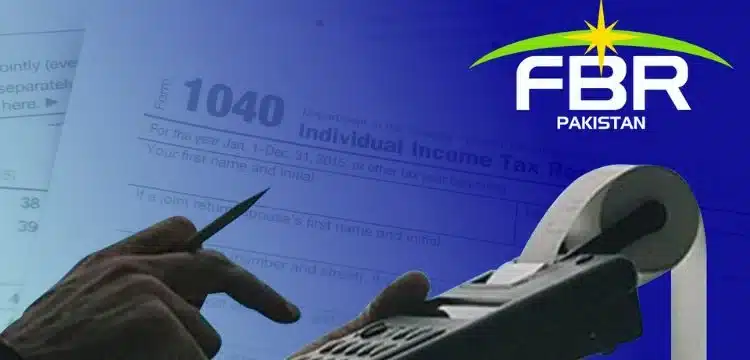[vc_row][vc_column][vc_column_text dp_text_size=”size-4″]
In a significant development, the Federal Board of Revenue (FBR) has reported a substantial increase in refunds disbursed during September 2023 compared to the previous year, signaling a significant improvement in the tax collection and refund distribution system. The FBR disbursed a total of Rs. 37 billion in refunds in September 2023, up from Rs. 18 billion in September 2022, marking a remarkable increase of Rs. 19 billion.
According to data released by the FBR regarding tax collection for the first quarter of the fiscal year 2023-24 (July-September), the total amount of refunds paid during this period reached Rs. 128 billion. This includes refunds of Rs. 42 billion issued in August 2023, compared to Rs. 38 billion in August 2022. In July 2023 alone, the FBR disbursed refunds amounting to Rs. 49 billion.
Also Read: FBR Extends Deadline For Income Tax Return Filing
However, alongside these positive developments, concerns regarding the authenticity of refunds have come to the forefront. It has been revealed that a significant amount of sales tax has been evaded through the fraudulent use of flying invoices and illegal refunds, with estimates ranging from Rs. 5 to 6 trillion. While the FBR has made efforts to reduce the use of fake invoices through system checks, the phenomenon of flying invoices has persisted.
In response to these concerns, the Federal Tax Ombudsman (FTO) has issued strong recommendations to the FBR to enhance the integrity of the refund system, particularly the “FASTER” refund system, which facilitates quick refund processing. The FTO has proposed several measures to safeguard the refund system:
- Physical Verification: Manufacturers filing their first sales tax refund claim in the “FASTER” system should undergo physical verification of their business premises by the respective Regional Tax Office (RTO). This verification aims to ensure the legitimacy of the business activity and its production capacity, corroborated with utility expenses. Any changes in Form 181 in IRIS should require prior approval from the relevant Commissioner-IR.
- Validation Checks: The FBR should implement validation checks to cross-match purchases declared in sales tax returns with the capital declared in income tax returns.
- HS Code Correlation: The FBR should mandate the correlation of HS codes of purchased goods as declared in sales tax returns with the supply chain, making it compulsory in IRIS for refund claimants.
- STRN Suspension Checks: Introduce checks in FASTER to block refunds when there is a suspension of the sales tax registration number (STRN) with the same CNIC of an individual, AOP member, or company director.
- Actual Payment Verification: Replace the current invoice-based input verification mechanism in FASTER with evidence-based physical transaction verification to ensure accurate input tax deposits in the government treasury.
It is important to note that there are only two accepted methods for sales tax payment: through CPR or through a Bill of Entry at the time of import.
These recommendations from the FTO aim to enhance the transparency and authenticity of the refund system, ensuring that refunds are granted only to deserving claimants while curbing fraudulent practices. The FBR’s proactive steps and collaboration with the FTO demonstrate a commitment to improving tax administration in the country.
[/vc_column_text][/vc_column][/vc_row]











